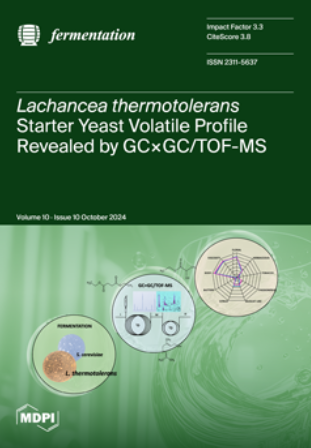The Human Body as an Ethanol-Producing Bioreactor—The Forensic Impacts
IF 3.3
3区 农林科学
Q2 BIOTECHNOLOGY & APPLIED MICROBIOLOGY
引用次数: 0
Abstract
Auto-brewery syndrome (ABS), also called gut fermentation syndrome, is an extremely infrequent but also underrecognized disorder where ethanol is produced endogenously, similar to a typical bioreactor. The reliability of forensic alcohol analysis results is frequently challenged as the ethanol concentration in the breath, blood, and/or urine constitutes important evidence for prosecuting drivers under the influence of the alcohol. This further emphasizes the need to understand ABS, as in legal proceedings it is often presented as grounds for acquittal due to the concept that the findings could have corresponded to endogenously produced ethanol. However, this rare and underdiagnosed medical condition should not be considered as purely a lawyer’s favorite argument. Manifestations of ABS can have a severe impact on a patient’s life and pose social consequences as well. Unfortunately, barely anything has been unearthed, and aspects such as genetic susceptibility, gut-mucus-eating microorganisms, and fecal microbiome transplantation were reviewed for the first time in this context. The framework of this review was not limited to the gut microbiota exclusively; moreover, the overgrowth of microorganisms is linked to the use of antibiotics. Studies have indicated that carbohydrate fermentation occurs in locations other than in intra-intestinal flora. Accordingly, the literature was searched for cases of patients with ABS with yeast infections in their genitourinary or oral systems.人体作为生产乙醇的生物反应器-法医影响
自动酿酒综合征(ABS),也称为肠道发酵综合征,是一种极为罕见但也被低估的疾病,乙醇是内源性产生的,类似于典型的生物反应器。法医酒精分析结果的可靠性经常受到质疑,因为呼气、血液和/或尿液中的乙醇浓度是起诉受酒精影响的司机的重要证据。这进一步强调了理解ABS的必要性,因为在法律诉讼中,由于调查结果可能与内源性乙醇相对应,ABS通常被视为无罪释放的理由。然而,这种罕见且诊断不足的疾病不应被视为纯粹是律师最喜欢的论点。ABS的表现会对患者的生活产生严重影响,并造成社会后果。不幸的是,几乎没有发现任何东西,遗传易感性、肠道粘液吞噬微生物和粪便微生物组移植等方面首次在这方面进行了综述。这篇综述的框架不仅限于肠道微生物群;此外,微生物的过度生长与抗生素的使用有关。研究表明,碳水化合物发酵发生在肠道菌群以外的其他地方。因此,文献检索了ABS患者泌尿生殖系统或口腔系统酵母感染的病例。
本文章由计算机程序翻译,如有差异,请以英文原文为准。
求助全文
约1分钟内获得全文
求助全文
来源期刊

Fermentation-Basel
BIOTECHNOLOGY & APPLIED MICROBIOLOGY-
CiteScore
3.80
自引率
18.90%
发文量
594
审稿时长
7 weeks
期刊介绍:
Fermentation-Basel is an international open access journal published by MDPI, focusing on fermentation-related research, including new and emerging products, processes and technologies, such as biopharmaceuticals and biotech drugs. The journal enjoys a good reputation in the academic community and provides a high-impact forum for researchers in the field of bioengineering and applied microbiology.
 求助内容:
求助内容: 应助结果提醒方式:
应助结果提醒方式:


